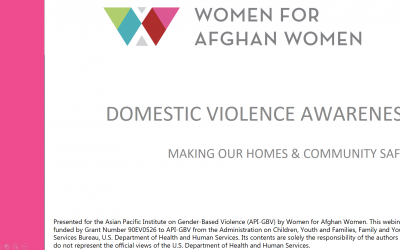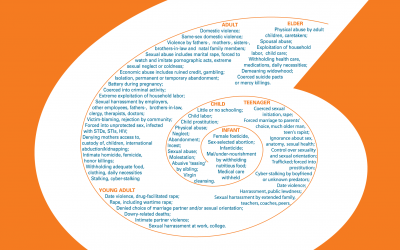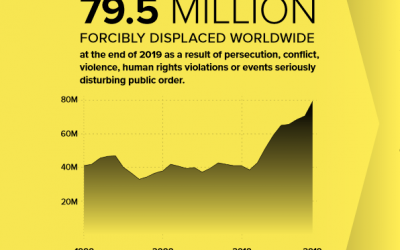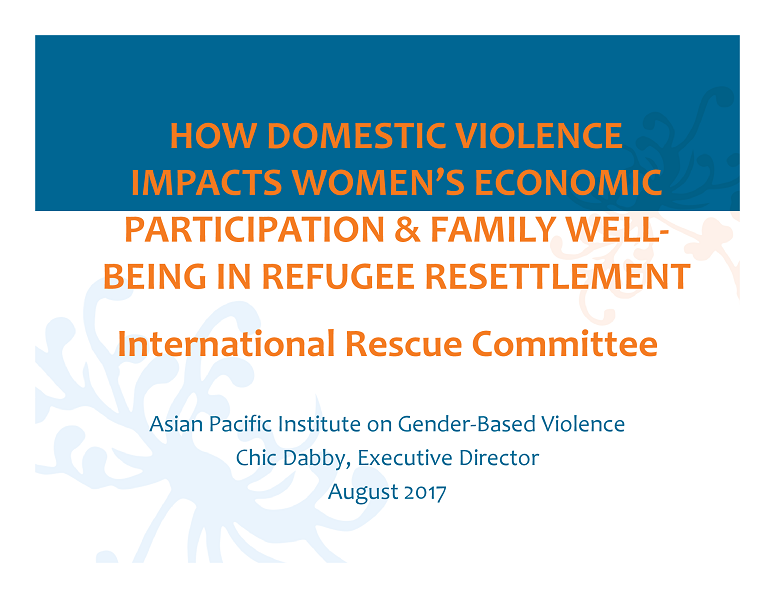These training slides address the impact of trauma and resettlement challenges on refugee communities; the dynamics of domestic and family violence in refugee populations in the US and how they restrict refugee women’s economic security.
Related Resources
Making Our Home and Community Safe: Responding to Afghan Evacuees
Following the sudden withdrawal of U.S. military presence from Afghanistan nearly 100,000 Afghan refugees were evacuated to the United States, with many still remaining on U.S. military bases and resettlement to happen by the end of January 2022. Many evacuees now face uncertainty related to their immigration status, concern about families back in Afghanistan, and the challenge of acclimating to life in the U.S.
Lifetime Spiral of Gender Violence
The Lifetime Spiral reveals patterns of victimization by enumerating the types of violence, vulnerabilities, and harms women and girls face.
Lifecourse Experiences of Intimate Partner Violence and Help-Seeking among Filipina, Indian, and Pakistani Women, 2010
IPV often recurs over the lifecourse and survivors’ decisions to seek help are shaped by their history of positive and negative experiences of help-seeking, and because their preferred and actual sources of help change over time. Using the Life History Calendar to interview 143 Filipina, Indian and Pakistani domestic violence survivors, this research enhances our understanding of help-seeking over the lifecourse and makes recommendations for system responses to domestic violence in Asian communities.
Refugee Survivors of Domestic and Sexual Violence: Barriers to Access
This TA brief discusses the barriers to access and services refugee survivors of domestic and sexual violence face and offers recommendations to advocates.



